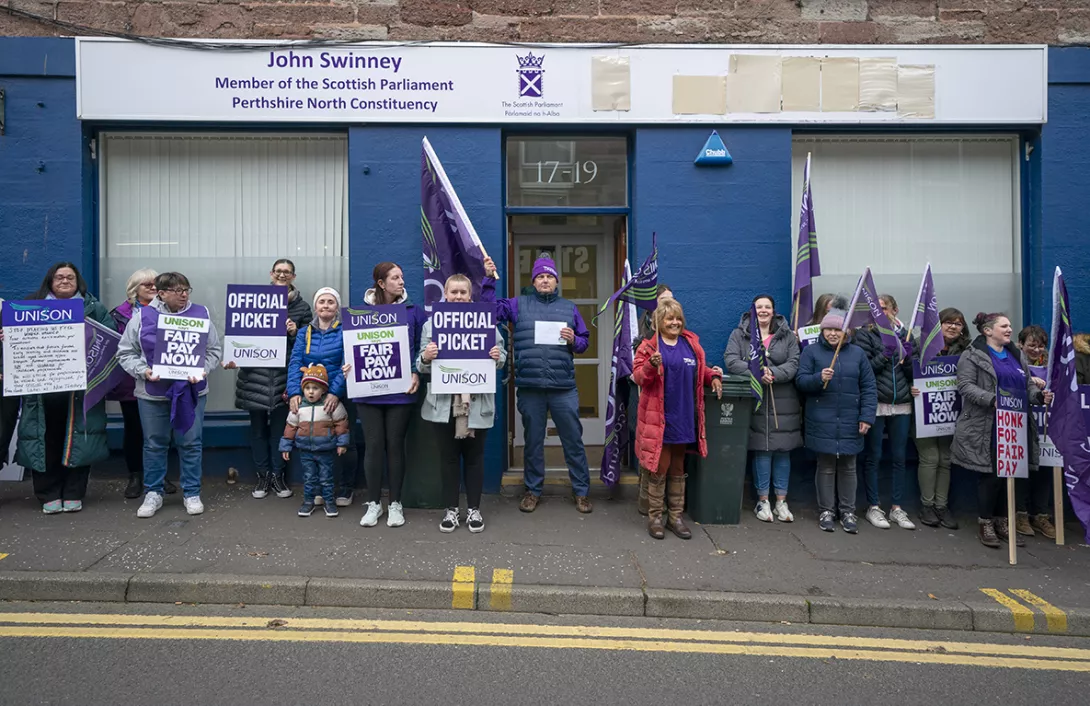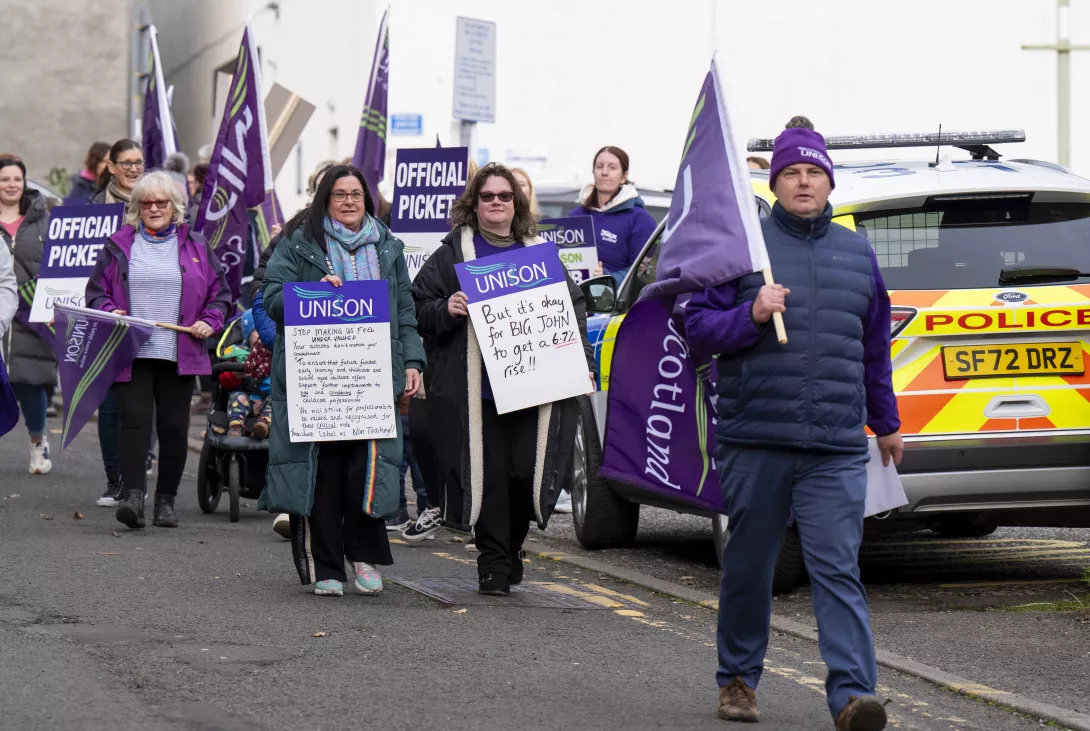The proxy war in Ukraine is heading to a denouement with the US and Russia dividing the spoils while the European powers stand bewildered by events they have been wilfully blind to, says KEVIN OVENDEN
Another week, another strike
Unison local government committee member BRENDA AITCHISON explains why huge numbers of local government workers in schools will be taking strike action next week across Scotland

A GREAT deal has been written about the unprecedented number of strikes which have taken place across sectors of the economy since we moved out of the pandemic.
It was in March 2020, just before lockdown, that the broadcaster, author and DJ (all-round polymath) Stuart Maconie wrote in his book The Nanny State Made Me about just how many services we rely on and the need for them to be properly invested in.
Millions of those workers who were the backbone of the country during the pandemic and beyond would have rightfully thought they would not be forced to use their industrial muscle to gain better pay. How wrong they were, and strike action has been taken in record numbers.
More from this author

With the Scottish government’s Budget day coming up in early December, BRENDA AITCHISON presses for public services to be properly funded at last after years of neglect and austerity

This year is the Unison Year of LGBT+ Workers, and this means all of us in the trade union movement must acknowledge the deepening challenges that are emerging in Britain and around the world, writes BRENDA AITCHISON

As we watch the cost-of-living crisis deepen and see full-time workers relying on foodbanks and charities, we are also witnessing the rapid growth of class consciousness and trade union action against poverty, writes BRENDA AITCHISON

Scotland is looking at a groundbreaking extension of social provision — or is it? Unless this project is publicly funded and run, with the private equity firms and hedge funds kept out, it will be a step sideways at best, argues BRENDA AITCHISON













